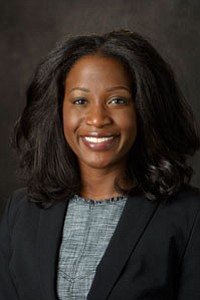Breast Cancer Awareness month provides a prime opportunity to begin a dialogue about breast health. Breast cancer remains one of the most commonly diagnosed cancers in American women with studies showing that one in eight women has a chance of developing breast cancer at some point in her lifetime. The American Cancer Society estimates that in 2018, 268,670 women will be diagnosed with a new breast cancer with 13 percent of these new diagnoses in the state of Maryland. With more screening and improved imaging techniques, breast cancers are being detected at an earlier stage, allowing patients to live longer, disease-free lives.
Even with these advances in the treatment of breast cancer, there still remains disparities in survival outcomes between racial groups. While the incidence of a breast cancer is growing increasingly similar between white and black women, black women continue to be diagnosed with a later stage of disease and have a higher rate of breast cancer-related death. This stark difference is even more present here in Baltimore where, in 2014, African- American women had a mortality rate 1.5 times that of the national average, placing us seventh in the nation in breast cancer mortality. It is more important than ever to ensure that all groups have the same access to education and treatment for what is now a survivable disease. Here are some ways that you can become an advocate for your breast health:
Healthy Living— Studies have shown that certain lifestyle choices may influence your risk for developing breast cancer. Reducing your alcohol intake, stopping smoking and maintaining an active lifestyle are examples of ways you can help reduce your risk for developing breast cancer.
Know Your Risk— It is important that individuals know their personal risk of developing breast cancer. Certain risk factors such as age, African- American race, breast-feeding history and hormone exposure may increase your risk. Take the time to determine if close family members have a history of specific cancers that may qualify you for genetic testing or screening mammograms before the age of 40. Ten percent of all breast cancers can be attributed to a genetic mutation. Cancers of this sort often present at an earlier age and with more aggressive features. Recognizing these patterns in your family may help to detect cancers at an earlier stage or even highlight the need for measures to reduce your risk.
Know Your Breasts— While studies have shown that self-breast exams do not increase the ability to detect a new breast cancer, there is still some benefit to regular self-breast exams. You may experience fibrocystic changes to the breast around your menstrual cycle. Having a baseline assessment of your breasts will allow you to better inform your doctor of any new findings that arise.
Get Screened— Consensus guidelines from the American Society of Breast Surgeons and other organizations recommend that all women begin yearly screening mammograms at the age of 40. While there are varying recommendations as to when to start having mammograms as well as how often to have them, it is important you and your doctor develop a clear plan based on your individual risk. Depending on the individual case, additional types of screening such as ultrasound or MRI may be considered.
Breast cancer in the modern era has become a treatable disease with excellent survival outcomes when discovered at an early stage. You need to know your personal risk so you and your doctor can determine the best screening practices for you. Remember, early detection is key!
For more information about the breast team at the University of Maryland Marlene and Stewart Greenebaum Comprehensive Cancer Center, visit our website at https://www.umms.org/umgccc/cancer-services/cancer-types/breast.
